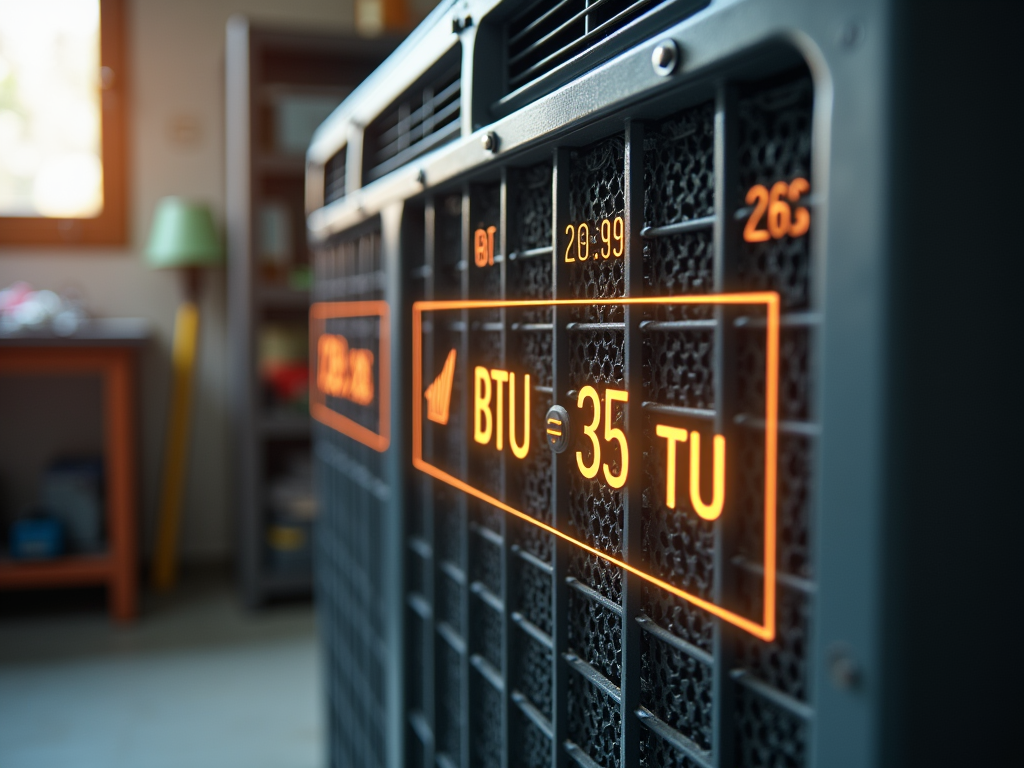Choosing the right size air conditioner is crucial for ensuring maximum comfort and energy efficiency in your home. An improperly sized unit can lead to excessive energy consumption, inadequate cooling, or a quick burnout of the system. Understanding how to determine the correct size for your air conditioner can save you money and provide a comfortable indoor environment. You’ll need to consider factors such as your home’s square footage, layout, insulation, local climate, and the efficiency ratings of the unit you choose. In this article, we will delve into the aspects of air conditioner sizing, providing you with the knowledge needed to make an informed choice.
Understanding BTUs: The Key Measurement

One of the crucial factors in determining the size of your air conditioner is BTUs, or British Thermal Units. BTUs measure the amount of heat an air conditioning unit can remove from the air in one hour. This measurement is fundamental, as it helps to ensure that the unit cools the space effectively without constantly running. The appropriate BTU rating for your air conditioner will depend on various factors, including the size of your room and its insulation quality. Generally, you should consider the following ranges:
- Up to 150 square feet: 5,000 – 6,000 BTUs
- 150 to 250 square feet: 7,000 – 8,000 BTUs
- 250 to 350 square feet: 9,000 – 12,000 BTUs
- 350 to 450 square feet: 12,000 – 14,000 BTUs
- 450 to 550 square feet: 14,000 – 16,000 BTUs
It’s essential to note that these are general guidelines, and you should adjust according to other conditions, which we will discuss next.
Factors to Consider When Sizing Your Air Conditioner

Several factors can influence the amount of BTUs required for cooling your space efficiently. It’s vital to consider these elements in your assessment:
- Room Size: Measure the total square footage of the area that needs cooling.
- Insulation Quality: Well-insulated homes may require fewer BTUs.
- Number of Windows: More windows can mean higher heat gain, necessitating more cooling power.
- Local Climate: Hotter climates require more powerful units.
- Ceiling Height: Rooms with higher ceilings may need additional cooling capacity.
Taking these factors into account will help you determine the precise cooling requirements for your space, allowing you to find the best air conditioning solution suited for your needs.
Calculating Your Air Conditioning Capacity
To find the ideal air conditioner size for your area, you may want to perform a straightforward calculation. The most effective way is to use a general rule of thumb that uses your room’s square footage and adjusts for other variables. You can start with this simple formula:
BTUs Required = Room Area (sq. ft.) x 20
For instance, if you have a room that is 300 square feet:
300 sq. ft. x 20 = 6,000 BTUs
This formula provides a baseline; you can modify your calculation based on additional factors mentioned previously, such as insulation and local climate conditions. Fine-tuning your BTU calculation will ensure you choose a unit that doesn’t underperform or waste energy.
Benefits of Properly Sizing an Air Conditioner
Getting the right size air conditioner has significant benefits, including efficiency and comfort. Here’s a rundown of the key advantages:
- Increased Energy Efficiency: A properly sized AC unit operates more efficiently, which translates to lower energy bills.
- Improved Comfort: The right unit will effectively cool the space, eliminating hot spots and maintaining consistent temperatures.
- Longer Lifespan: Just like any other appliance, excessive wear and tear on an overworked unit can lead to maintenance issues and reduce its lifespan.
- Fewer Repairs: A correctly sized AC will have fewer operational issues, which means reduced repair costs over time.
- Better Indoor Air Quality: An efficient unit maintains adequate airflow and circulation in the space, resulting in improved air quality.
These benefits clearly show that investing time in correctly sizing your air conditioning unit can save you money and enhance your living environment significantly.
Conclusion
Choosing the right size air conditioner is critical in achieving comfort, energy efficiency, and longevity of the equipment. By understanding BTUs, considering all necessary factors related to your home, and using simple calculations, you can determine the correct size necessary for optimal cooling. This investment in proper sizing pays off in the long run through lower energy bills and improved comfort levels. Make sure to consult with professionals if needed, and always double-check your calculations to ensure a perfect fit for your cooling needs.
Frequently Asked Questions
1. How do I know if my air conditioner is the right size?
Monitor how your unit performs. If it runs constantly without adequately cooling the room, it might be too small. Conversely, if it cools quickly but cycles on and off frequently, it may be too large.
2. Can I use an online calculator to determine air conditioner size?
Yes, many online calculators consider factors such as square footage, insulation, and local climate to recommend a suitable BTU rating.
3. How often should I Servicing my air conditioning unit?
A regular service every six months is recommended to maintain performance and extend the life of your air conditioning unit.
4. What happens if I choose the wrong size air conditioner?
An oversized unit can lead to increased energy costs and humidity issues, while an undersized unit will struggle to cool effectively, leading to discomfort.
5. Should I hire a professional for sizing recommendations?
Hiring a professional HVAC technician is beneficial, as they have the tools and expertise to provide accurate measurements and recommendations for your specific needs.



